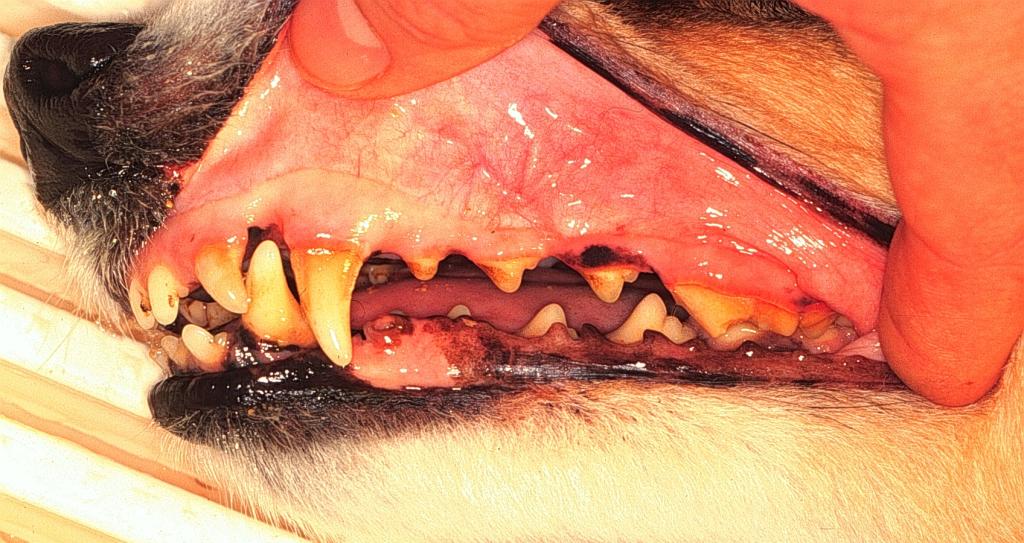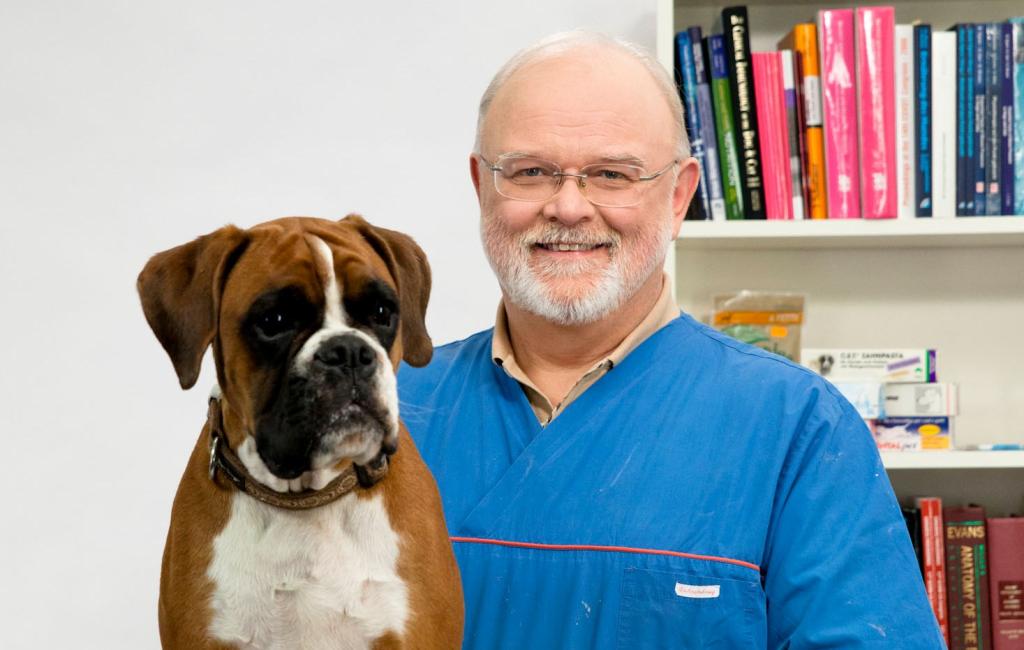Beautiful and healthy
Presenting valuable show dogs at national or international Kennel Club meetings
or Dog Shows is a full-time job: not only must the four-legged candidates be healthy,
in top-shape and perfect form - also cosmetical aspects play an important role to
win the Show and be a CHAMPION!
No Dog Show allows unhealthy dogs to be presented in the ring, and every effort
must be taken to avoid any possible hazard of spreading infectious diseases between
the show dogs. Effective control mechanisms, mostly under the supervision of veterinarians,
are established at least in the larger and more important shows, to sort out dogs
with diseases, fever or non-tolerable behaviour.
But who looks into the mouth?
Very often the judges inspect the oral cavity very meticulously, because a healthy,
clean and correctly developed dentition and skull is a paramount part of the general
appearance and status of any candidate. Skull, alveolar bones and dentition have
to match the breed “Standard” of every registered breed. Missing or discoloured
teeth, covered with slimy unhygienic masses or unpleasant odour from the mouth would
not be a favourable precondition for a successful presentation.


An “average mouth”: no signs of severe gingivitis or periodontitis are present, but unattractive discolorations and biofilms (plaque) are obvious; not good enough for a CHAMPION.


This 7-year old Malinois shows signs of use and wear (abrasions) but his teeth are clean, gums and periodontium are in excellent condition.
An unhealthy and unattractive dentition is in most cases caused by periodontal disease,
which is the most common of all diseases in mammals. More than 80 % of all adult
individuals – may that be cats, dogs or humans – suffer from it. The prevention
of periodontal disease is a life-long struggle which includes home-care, appropriate
nutrition and – if unavoidable – professional veterinary treatment.
As always - prevention is better than cure
Only approximately 10 % of pet dogs receive daily oral hygiene, this means that
many dogs suffer from a very poor condition in their mouth, continuous active infection,
associated with permanent pain, finally loss of function due to lost teeth and or
even organ infection.
As a precondition for successful work with breeding dogs and show dogs, owners of
these animals have a by far higher motivation (and education) and take good care
of the overall health and dental condition of their precious dogs. Regular tooth
brushing, appropriate nutrition, systematical controls and health checks at the
veterinarians are of paramount importance. For every showdog, daily tooth-brushing
with special toothbrushes and tooth-pastes is highly recommended. Never use human
tooth-pastes, they are not only badly accepted by dogs, but also contain ingredients,
which can damage the gums. If discolorations are detected, tartar-build up or halitosis
is present, the veterinarian should be contacted.
Bad teeth – bad ranking
Not too long before important shows, the dog should be seen by a vet and – if necessary
- get a complete dental check and prophylaxis , which means a thorough cleaning
and removal of all soft biofilms (Plaque) and hard mineralised debris on the dental
surfaces (Tartar, calculus). The teeth should be polished after cleaning to avoid
rough dental surfaces after the procedures, which would allow new plaque to recolonise
again very quickly, making repeated procedures necessary year after year. Dental
plaque is highly pathogenic and the primary cause of both gingivitis and periodontitis
or even tooth loss. In addition these aggressive plaque bacteria can enter the blood
stream and be spread across the whole body, which may cause septicaemia and organ
disease.
The accumulation of dental plaque on the dental surfaces is the primary cause of
Gingivitis and Periodontitis, thus the key for success in preventing
such periodontal conditions is control of the plaque -> no plaque – no gingivitis/periodontitis!
The benefit of professional periodontal therapy is short-lived unless followed by
effective home care. Regular tooth brushing is the best method to achieve that,
but both owners and dogs are not always able to handle this, also oral medications
can help to reduce plaque.
The role of nutrition
Foods which encourage plaque build-up should be avoided. This includes snacks between
meals, high carbohydrate foods such as table scraps, sweets and others unnatural
food for dogs. Feeding specially formulated nutrition (specific dental diets, diets
with an included dental benefit across the range, dental chewing sticks) is an additional
effective way to reduce the amount of plaque in the oral cavity.
I recommend:
- Regular professional check-ups and cleanings at your vet, once or twice a year
- Daily tooth brushing and chewing toys
- Feeding a diet that reduces plaque and tartar build-up


Dr.med.dent. Dr.med.vet. Peter Fahrenkrug
Dentist, Veterinarian and expert in Veterinary Dentistry
Dr. Dr. Fahrenkrug is one of the internationally leading experts in canine dentistry.
This educational article has been brought to you by
